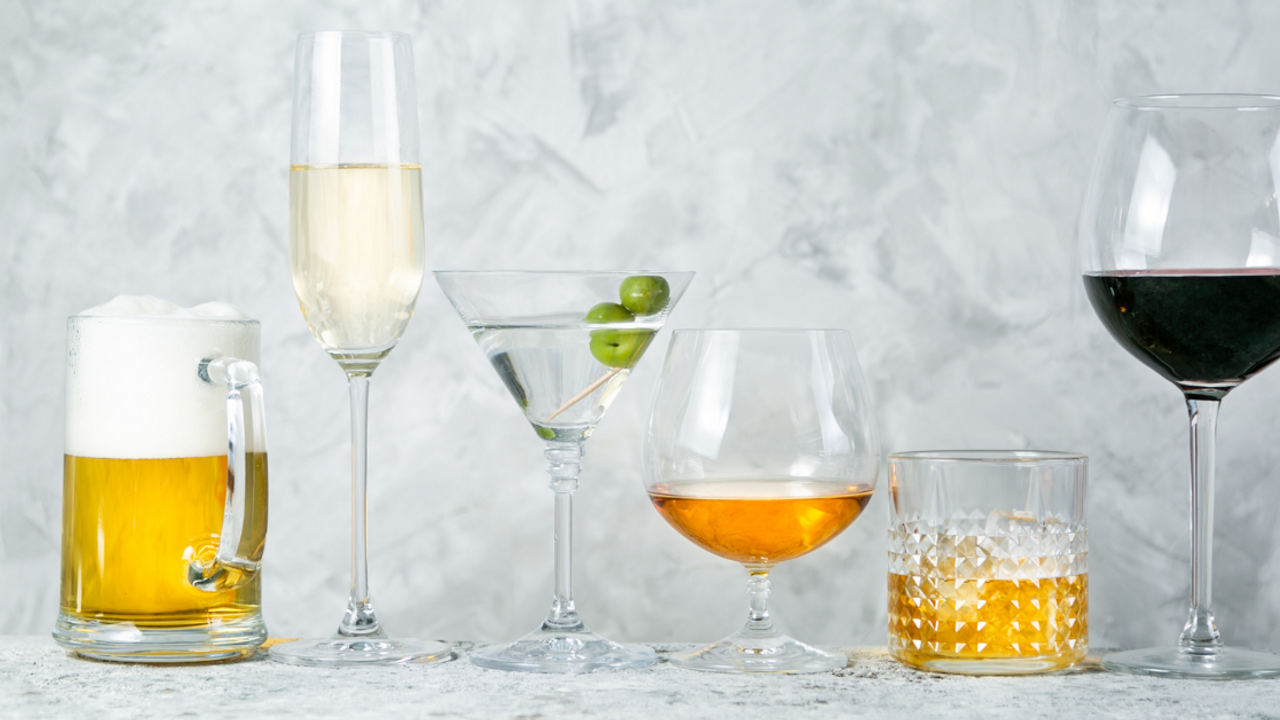The Booze & The Body - How Alcohol Affects Your Body During Menopause
Mar 02, 2020
Are you sabotaging your metabolism and weight loss goals with alcohol?
Professionals in the health and fitness communities know that alcohol has a “disinhibiting” effect and can stimulate people to eat more. We tend to advise people to drink alcohol moderately because drinking too much can easily lead to supreme nachos and a basket of fries.
Beyond the disinhibiting effect, scientific studies have shown that weight loss and drinking alcohol don't go well together because alcohol can change the way your body burns fat. When alcohol is consumed it is converted into a substance called acetate. The acetate is released into the bloodstream and the body becomes focused on breaking down the acetate instead of metabolizing carbohydrates, proteins, and fats.
That is why people who drink alcohol need to eat less or exercise more just to maintain their weight.
According to a thorough review published in 2015 in Current Obesity Reports, “frequent light to moderate alcohol intake does not seem to be associated with obesity risk.” However, binge drinking (consuming five or more drinks on an occasion) and heavy drinking (+ four drinks a day for men, or + three for women) were linked to an increased risk of obesity and an expanding waistline. The conclusion reached from recent studies is that heavy drinkers risk gaining weight and “light to moderate alcohol intake is not associated with weight gain or changes in waist circumference.”
Drinking patterns, genetics, and gender can influence the effect of alcohol on health and weight. Binge drinking is associated with a higher risk of cardiovascular disease and obesity. Women who drink moderately (1-2 drinks per day) are less prone to weight gain from alcohol, according to epidemiological data. Adding to the complexity, a recent study published in the Nutrition Journal found that “the association between moderate alcohol consumption and abdominal, but not total fat was dependent on genetic risk; those genetically predisposed appeared protected against abdominal fat accumulation.”
There is evidence that light to moderate beer consumption may have beneficial effects for menopausal women. The hop and beer polyphenols may help relieve some common symptoms associated with menopause. There’s also some promising evidence to suggest that choosing red over white wine might be more beneficial for women. For every study highlighting potential benefits, there are studies concluding the opposite. There just isn’t enough conclusive evidence for either side. So, my advice to you is that if you enjoy having a drink, do it in moderation and pay attention to the effect that alcohol has on you. Does it help you fall asleep or relax and take the edge off at the end of the day? Then great! Does it cause you to have hot flashes and sleepless nights? You might want to skip it!
And in regards to your fitness and weight loss goals, no, you don't have to give up drinking entirely. But, if you're trying to lose weight while still enjoying the occasional drink, you'd better be mindful about which drinks you choose. Studies indicate that there might be a difference in how different types of alcohol affect weight gain. “Wine may protect against weight gain, whereas intake of spirits and beer may be directly associated with weight gain”. Also, the differences in the calorie content of alcoholic drinks might surprise you.



